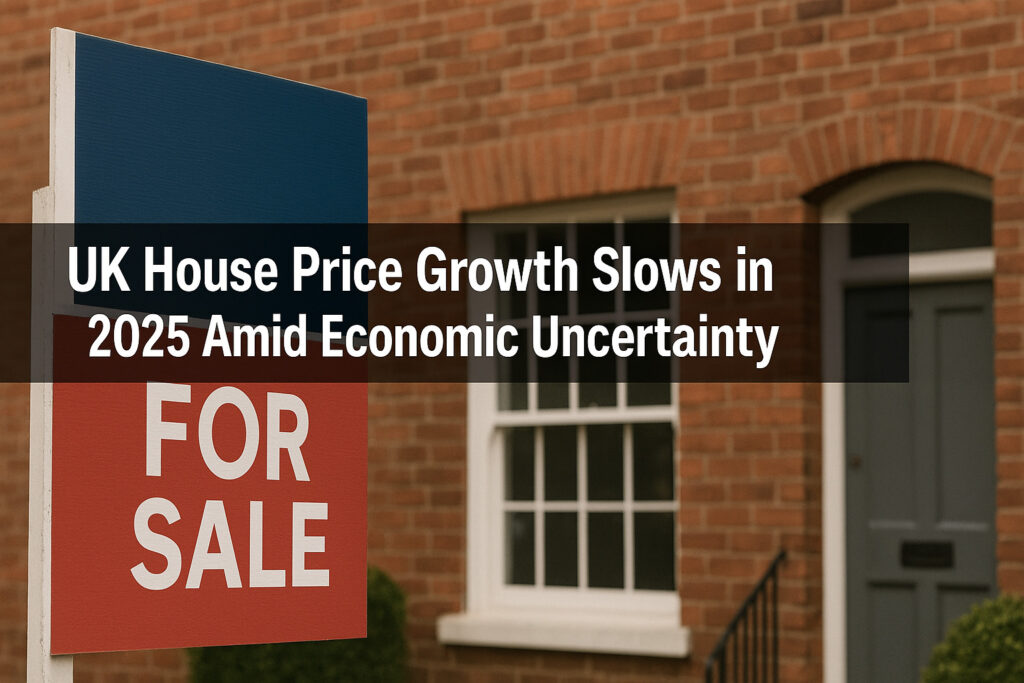The Sharp Decline in Overseas Property Investment in the UK
In the first quarter of 2025, international demand for UK residential property has plummeted to its lowest in over a decade.
According to transactional data from key estate agents and property market analysts, foreign buyer enquiries are down by over 40% year-on-year.
This downturn is not isolated but part of a broader trend driven by tightening global monetary policy, geopolitical instability, and increased regulatory scrutiny.
Foreign nationals, especially those from the Middle East and East Asia, who once constituted a significant segment of prime central London buyers, have significantly reduced their investment activity.
This trend extends beyond London, impacting other property hotspots such as Manchester, Birmingham, and Edinburgh.
Key Factors Behind Reduced International Property Demand
Stronger Pound Sterling
The strength of the British Pound has diminished the purchasing power of many international investors.
Currency fluctuations have made UK property relatively more expensive, especially for buyers transacting in USD, EUR, or CNY.
Increased Tax Burden for Foreign Buyers
The 2% foreign buyer surcharge introduced in 2021, combined with existing Stamp Duty Land Tax (SDLT) obligations, has made the UK property market less attractive to international buyers.
When layered with higher capital gains taxes and inheritance tax complexities, the appeal of UK assets has weakened considerably.
Rising Interest Rates Globally
The global surge in interest rates, especially in the U.S., EU, and GCC nations, has reduced liquidity and increased borrowing costs for offshore investors.
This has shifted buyer preferences to domestic markets with higher returns and fewer tax hurdles.
Increased Regulatory and AML Checks
Heightened due diligence, anti-money laundering (AML) protocols and beneficial ownership transparency laws have further complicated property acquisitions by international entities and trusts.
Geopolitical and Economic Volatility
Conflicts in Ukraine and the Middle East and trade tensions between China and Western nations have prompted risk aversion.
Cross-border capital is increasingly cautious and often redirected to safer or more stable jurisdictions.
Regional Breakdown: How the Decline Varies Across UK Cities
CityYoY Decline in Int’l Buyer EnquiriesPrimary Buyer Segment Affected
London -48% Middle Eastern & Chinese HNWIs
Manchester -39% European investors via Golden Visas
Birmingham -36% of Asian buyers seeking student housing
Edinburgh -41% U.S. investors targeting buy-to-lets
Bristol -33% South African & Hong Kong buyers
Long-Term Impact on UK Property Prices
While some believe the absence of foreign capital may correct the inflated prices in prime locations, others argue this could lead to reduced liquidity, delayed sales, and falling valuations in high-end segments.
Developers are increasingly pivoting to domestic buyers, reconfiguring luxury builds to appeal to middle-class and first-time buyers in the UK.
Strategic Opportunities for UK-Based Investors
Despite the downturn, there is a silver lining for domestic investors:
Less Competition, More Negotiation Power
With fewer cash-rich foreign buyers driving bidding wars, UK buyers have increased leverage to negotiate better deals, especially in historically saturated zones such as Mayfair, Knightsbridge, and Canary Wharf.
Higher Yields in Emerging Regional Markets
The lull in international activity has exposed gaps in smaller cities like Leeds, Nottingham, and Newcastle. Domestic investors can now secure high-yield properties with minimal international bidding pressure.
Repurposing Luxury Builds
Developers on unsold luxury inventory may offer substantial discounts or explore conversions to HMOs or serviced accommodation. This creates buy-low, re-purpose-high opportunities for savvy UK investors.
How Agents Can Adapt: Rethinking International Marketing Strategy
Agents and developers must now pivot their outreach. Instead of relying on international roadshows and partnerships with foreign brokers, agencies should focus on:
Enhancing domestic digital marketing campaigns.
Leveraging PropTech for virtual viewings and local SEO optimisation.
Offering flexible financing solutions through UK-based lenders.
Building trust through transparency, AML compliance, and post-sales support.
Forecast for 2025–2026: Will Foreign Interest Rebound?
While the current downturn appears structural, a future rebound is possible—particularly if:
The UK reduces the foreign buyer surcharge.
Currency dynamics shift favourably.
Political stability returns across key investor regions.
The UK negotiates new investment treaties or visa schemes.
However, these factors remain speculative. The more likely scenario is a sustained period of moderated international interest, forcing the UK market to reorient toward domestic demand and sustainable growth.
📊 Foreign Buyer Activity Trend (2018–2025)
2018: High activity from international buyers across the UK property market.
2019: There was a slight decline due to Brexit uncertainty and political instability.
2020: Sharp drop in demand caused by the global COVID-19 pandemic and travel restrictions.
2021: Temporary rebound as the UK introduced a stamp duty holiday, encouraging foreign investment.
2022: Decline resumes due to increased taxation, including the 2% foreign buyer surcharge.
2023: Market volatility driven by currency fluctuations and tighter financial regulations.
2024: Rising global interest rates reduce affordability and appetite for overseas property purchases.
2025: Record low levels of international buyer interest, driven by all the above-compounded factors.
Frequently Asked Questions
Why has international demand for UK property dropped in 2025?
The decline is driven by a stronger pound, increased taxes on foreign buyers, global interest rate hikes, stricter anti-money laundering regulations, and geopolitical instability.
These issues have made UK property less financially attractive and more complex for overseas investors.
Which international buyers have reduced activity the most?
Buyers from China, the Middle East, the U.S., and parts of Europe have shown the sharpest declines in activity, particularly in cities like London, Manchester, and Edinburgh.
Is this downturn temporary or long-term?
While short-term factors like interest rates and currency exchange may shift, many new regulations and taxes are structural.
Unless UK policy changes or global conditions dramatically improve, the downturn could persist over the medium term.
How does this affect UK-based investors?
UK-based investors now face less competition from overseas buyers, allowing for better deal-making opportunities, especially in prime and emerging markets.
It’s a more favourable environment for those looking to enter or expand within the property sector domestically.
Will UK property prices fall due to lower international interest?
Prices in high-end areas reliant on foreign capital may stagnate or decline slightly. However, regional markets with strong local demand and limited supply will likely remain resilient.
Are developers changing strategies in response?
Yes, many developers are adjusting their focus towards domestic buyers. Some offer incentives, repurposing luxury units into rental schemes, or change pricing models to appeal to first-time UK buyers and investors.
Is now a good time to invest in UK property?
For domestic investors, this is a strategic window of opportunity. With international competition subdued, value acquisitions have greater scope, especially in underpriced regional markets or repurposed prime assets.
Could government policy changes reignite foreign interest?
Potentially, yes. Reducing or removing the foreign buyer surcharge, improving visa schemes, or offering tax incentives could restore some international appeal. However, no such policy shifts have been announced as of 2025.
What types of properties are most impacted by the decline?
Luxury flats in central London and student accommodation blocks aimed at foreign investors have seen the most significant slowdowns.
Properties priced above £1 million are particularly affected.
What should estate agents and property professionals do now?
Agents should shift focus to UK-based clients, invest in PropTech solutions, improve local SEO and digital presence, and adapt to the changing buyer profile by offering services tailored to domestic investors and renters.
Conclusion
The current decline in international demand for UK property is a critical market pivot that should not be underestimated. Adapting to this shift is not optional but essential for investors, agents, and developers.
By realigning strategies to domestic buyers, focusing on value-driven developments, and embracing digital-first marketing, UK property stakeholders can survive this downturn and thrive in the new real estate landscape.
Read our other Blogs:





